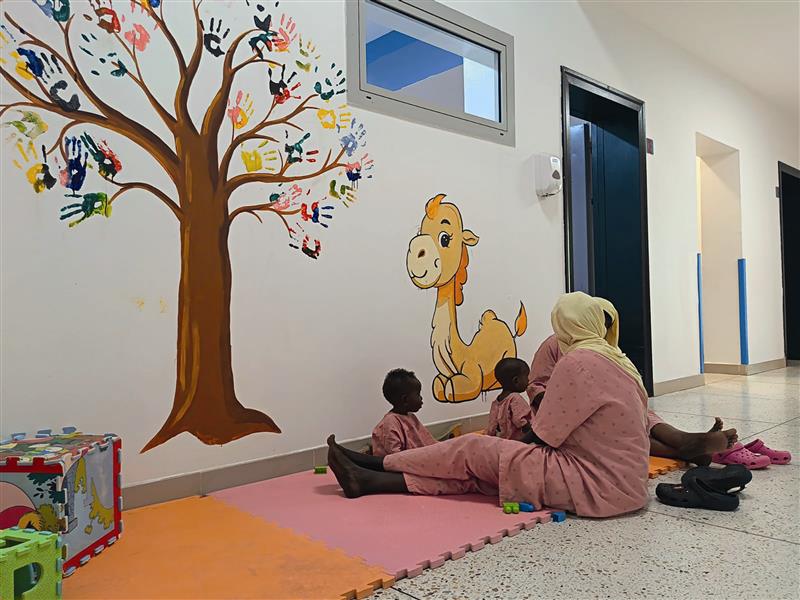The war in Sudan has raged for more than 1,000 days. The fighting continues to…

Sudan: “Maybe I’ll Go and Say Hi to Sherin Gul”
Reflections from the Salam Centre – 14 August
As always there are multiple patients waiting to have an operation, often young and in a serious condition.
In the meantime, our colleagues in Kabul send us upsetting news, news of war. There is fighting in Ghazni, roads are blocked, there is no water, there are no supplies, no one knows the number of victims that the fighting has caused, but there is talk of hundreds.
The surgical interventions we carry out here require such precision that they bring about high levels of tension – to ‘repair’ heart valves ravaged by rheumatic disease in children aged 11 to 15 – mixed with sadness for what is happening in Afghanistan.
In an operating room, a Sudanese specialist in anaesthesia is preparing the patient for the next surgery and on the gurney, I see… an Afghan girl, who arrived here thanks to our Regional Programme that has brought patients from almost 30 countries to the Salam Centre, to give them the chance to receive heart surgery.
I think how some massacre the Afghans, while others attempt to give them some hope by allowing them to undergo a surgery they never expected to be able to have.
Sherin Gul, 28 years old, is dying of fear in this super modern room, surrounded by people she doesn’t know, with faces half hidden by masks. I remember an Afghan greeting, I try to tell her that everything is going to be fine. They laugh at my strange language in the room, but she is grateful.
The next day, while in recovery, she wakes up. I greet her with joy to try and make sure she doesn’t feel alone. I explain to her that everything went well and that her congenital heart defect was corrected. I wonder if she knows what is happening in her country. I take her picture, thinking I could send it to my colleagues in Kabul, who might be encouraged to know that Sherin Gul is being treated thousands of kilometres away. There are three other patients coming from Kabul. I went looking for them in the ward to get to know them.
Karima is 38 years old. Last May she was visited in Kabul by our cardiologists, who diagnosed her with a valve disease that is responsive to surgery. She doesn’t stop hugging me, while I try and get by with my four Afghan words. She drags me to go and meet Mohammad Lal and Gul Islam, the other two patients who arrived from Afghanistan.

That night I recall an article I had read in a scientific magazine, in which the Salam Centre was cited. In Africa there is one heart surgery facility for every 8.5 million people, the EMERGENCY centre is the only one that offers free treatment and is among the very few able to carry out more than 500 operations a year. And it is here that a group of people arrived from Afghanistan, with hopes of finding a normal life again, while discomforting news continues to arrive from their home. It is something to be emotionally overwhelmed by.
I send the photos to Kabul and I go to visit the 11-year-old boy that tomorrow will have to undergo open heart surgery. Maybe I’ll go and say hi to Sherin Gul.
– Gina, EMERGENCY anaesthesiologist, from Sudan



